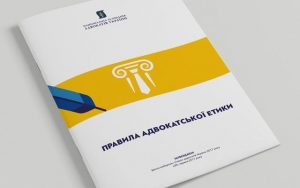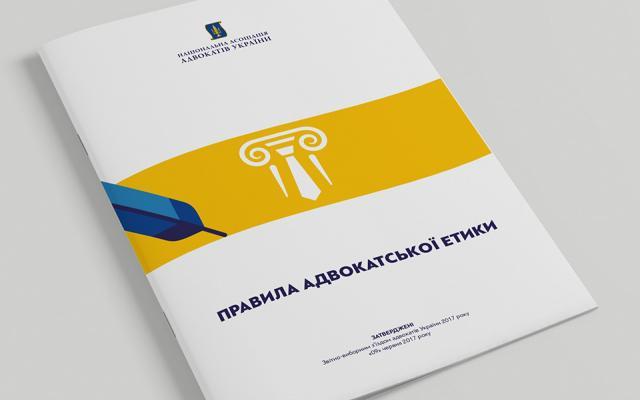Lawyers who provide free legal aid often find themselves in a situation where their professional activities are subject not only to the assessment of the client or the center of the legal aid office, but also to the careful analysis of the disciplinary bodies of the bar. Therefore, the disciplinary practice of the VQDCA becomes the main reference point for lawyers in how the Rules of Lawyer Ethics (RLE) are interpreted and applied in this area.
Regulatory background
 When carrying out BVPD assignments, lawyers are obliged to act in accordance with:
When carrying out BVPD assignments, lawyers are obliged to act in accordance with:
-
Law of Ukraine “On the Bar and Advocacy” (Article 25, Article 48);
-
Law “On Free Legal Aid”;
-
Quality standards for the provision of BVPD (order of the Ministry of Justice dated 21.12.2017 No. 4125/5);
-
Rules of Advocate Ethics (Articles 8, 11, 17, 18, 26, 41, 51).
Disciplinary practice of the VQDCA: key highlights
1. Coordination of the position with the client
The VQDCA has repeatedly emphasized that a lawyer must make every effort to agree on a legal position with the client.
-
In decision No. V-007/2023 dated May 26, 2023, the conclusion of the QDCA was overturned, which failed to properly assess the fact that the lawyer agreed to the investigator’s request for detention without taking into account the position of the client. This was recognized as a significant violation.
2. Refusal of the mandate
A lawyer has the right to refuse an assignment if this is provided for in the PAE (for example, Article 41). However, the refusal must be implemented correctly.
-
In the case (decision of the VQDCA No. IV-008/2022 dated April 29, 2022), the lawyer left the courtroom before the end of the hearing, which was considered contempt of court and grounds for disciplinary action.
3. Informing the client
Refusal of the mandate or application to the BVPD center for its termination obliges the lawyer to inform the client.
-
In decision No. V-011/2023 dated May 26, 2023, the VQDCA recognized as a violation the fact that the lawyer did not notify the client about the termination of the mandate, thereby limiting the right to defense.
4. Lack of legal grounds for action
Not all complaints against a lawyer are considered justified.
-
Decision No. I-015/2020 of January 31, 2020: the lawyer’s refusal to file a lawsuit that had no legal basis is not a disciplinary offense.
-
Similarly, in case No. I-017/2022 of January 31, 2022, it was confirmed that the lawyer’s legal opinion, which certifies the absence of grounds for executing the order, exempts him from liability.
5. Combining a contract and an order
-
In its decision No. XII-007/2021 dated 01.12.2021, the VQDCA concluded that the presence of a lawyer under a contract with a client does not exclude the participation of a lawyer by proxy. However, the latter must assess whether this harms the client’s interests. The decision of the VQDC on recovery was canceled, since the lawyer acted within the law.
6. Court requirements that contradict the law
-
In case No. XI-007/2021 dated November 30, 2021, the VQDCA confirmed that a lawyer who refused to comply with the court’s illegal requirements (regarding the simultaneous participation of several defense attorneys) cannot be held liable.
7. The significance of the commissions’ conclusions
The VQDCA takes into account the conclusions of the Commissions for the Assessment of the Quality of the Legal Aid, but their absence is not an automatic excuse for a lawyer.
-
Decision No. VII-002/2023 dated July 27, 2023: the Commission’s conclusion confirmed the lawyer’s proper work – the complaint was rejected.
-
At the same time, in decisions No. I-001/2023 and No. I-002/2023 dated January 27, 2023, the VQDCA noted: the absence of such a conclusion does not exclude the possibility of establishing a disciplinary offense.
8. Impossibility of stopping collection due to the order of the BVPD
-
In decision No. XII-004/2021 dated December 1, 2021, it was emphasized: the presence of valid instructions from the State Anti-Corruption Commission is not a basis for automatic suspension of disciplinary action.
Conclusions
The disciplinary practice of the VQDCA outlines clear “red lines” for lawyers in the BVPD system:
-
communication breakdown with the client;
-
arbitrary refusal of the mandate;
-
inconsistent procedural actions;
-
disruption of order in court
— these are real risks of disciplinary liability.
At the same time, when a lawyer acts in good faith, within the framework of the PAE and properly documents his actions (legal opinion, act of providing assistance, correspondence with the center), the VQDCA becomes the guarantor of his protection from unfounded complaints.
This practice forms a unified approach: a lawyer in the BVPD system must be not only a client’s defender, but also a model of professional ethics, because each of his actions can potentially become the subject of disciplinary review.




